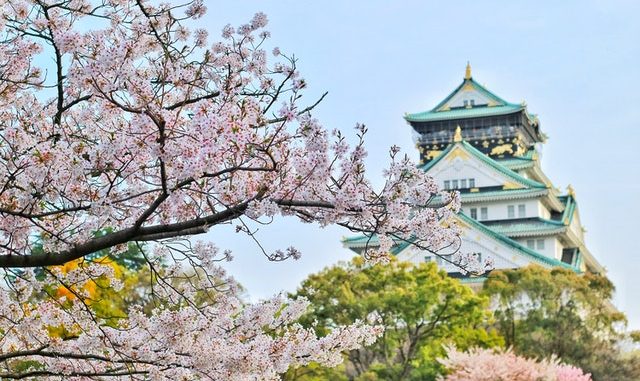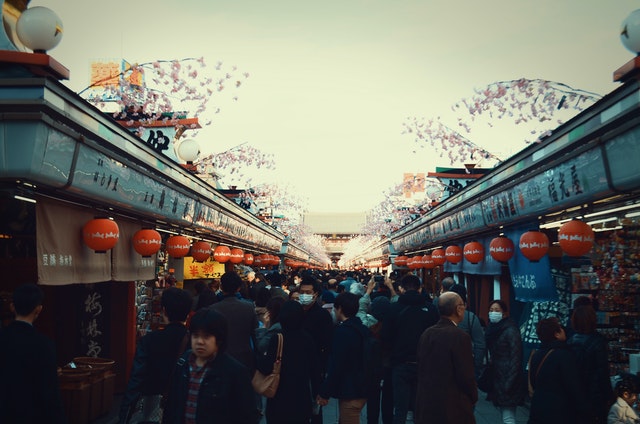
American residents often praise Japan and its culture, and it’s no secret. Because of this, it’s very tempting for people to move there and find that they are entirely out of their depth. Japanese culture is much different from the US, and this can easily catch people off guard.
Today, we hope to help you understand the ten key cultural differences between the US and Japan to make the cultural shock easier to deal with.
1. No food or drinks on-the-go
In the US, speed and convenience are critical when it comes to food. However, if you’re in the habit of grabbing a coffee to go in the morning, you’ll be disappointed to know that eating or drinking anything while walking is considered rude in Japan. This also extends to food and drinks on public transportation. In Japan, meals require proper time and comfort to enjoy.
This is one of the hardest parts of moving to Japan for Americans, besides the move itself. Moving to Japan from the US can be difficult, but the adjustment process is more complicated.

2. Public displays of affection are frowned upon
While it’s normal to see people openly showing affection in public in the US, you will never see this in Japan. Certain countries in the East outright prohibit showing affection in public, although Japan has no written rules about it.
Still, there is quite a lot of public pressure regarding it, and it’s considered in bad taste. So, if you’re going to Japan with your significant other, prepare yourself to keep touching to a minimum in public. Experts from fourwinds-ksa.com note this as one of the examples of why you should thoroughly research Japanese culture before moving there.
3. Hygiene is critical
Hygiene customs in Japan are rather extreme when compared to the US. It makes sense that the residents hold hygiene to the highest standard in such a densely populated country. Moist towelettes are mandatory in all restaurants and most places where you’ll use things touched by others, such as arcades.
When paying, don’t give the money directly to a cashier and instead look for a money tray. Also, you will see most people wear face masks while in public and on public transportation.

4. There aren’t many trash cans in public
If you leave home with something packaged or buy something while outside and have some rubbish to dispose of, you will need to carry it back home. Compared to almost anywhere in the world, there are very few trash cans in public in Japan. And when you do come across trash cans, you will see that there are a lot more classifications for trash.
In the US, you might be used to seeing the usual garbage and recycling division. In Japan, however, waste is much more classified. While this might be inconvenient at first, it helps Japan stay one of the cleanest countries in the world.
5. Punctuality is essential
While punctuality is important in the US, you will never see a businessman sprinting down the street. This is a common occurrence in Japan because being even a few seconds late is considered disrespectful.
This focus on timeliness applies to pretty much everything in Japan. When a train arrives, you won’t have long to board it. Elevators are the same. Wasting time while waiting in line is also considered very disrespectful. Getting used to this fast-paced lifestyle is a huge part of adapting after moving to Japan from the US.

6. Confusing toilets
The most confusing of all cultural differences between the US and Japan might be the toilets. While there are Western-style toilets, you are more likely to run into bathrooms that look like something out of a sci-fi movie.
While they offer plenty of convenient options, they can be very confusing to look at, and there are tutorials you can find online on how to use one.
7. Japanese service and business culture
There is no exact translation for what the Japanese call their service and business culture (Shokunin). A rough translation means pride and mastery in one’s profession, and it’s a cornerstone in Japanese culture. The word Shokunin conveys an entire business philosophy, which is why it’s so difficult to translate.
Essentially, it means that every worker engaged in every task constantly works with social consciousness, craftsmanship, and civic duty. Anyone coming from the US might find it strange how engrossed the Japanese get in their work. It can be one of the worst sources of cultural shock for Westerners. However, you will have to learn to cope with this change if you plan to live in Japan.
8. Always carry your passport
If you’re a visitor to Japan, remember to always have your passport on you. It is a legal requirement for anyone who isn’t a Japanese resident to have their passport on them, and the local police can detain you for breaching this. And since the Japanese police aren’t guaranteed to speak English in any capacity, your exit out of a precinct could get tricky.
9. No tipping
Unlike the US, Japan doesn’t have a tipping culture. A Japanese waiter accepting a tip is somewhat of a taboo. If you can’t resist the urge to tip, your tip won’t get accepted in most situations. Fortunately, the most popular jobs for foreigners in Japan aren’t those where you will receive a tip.
10. Communication can be quite indirect
The most jarring change for anyone coming from the US is typically the way Japanese people speak, and we don’t mean the language. Indirect communication, including body language, is a pretty big thing in Japan. When you ask someone to do something, they aren’t very likely to say no, and might instead say “it might be difficult” or something similar, and it can take a while to get used to this.
Cultural differences between US and Japan – explained
The cultural differences between the West and Japan can be pretty jarring, especially if it’s your first time there. However, if you plan to live in Japan, you will have to get used to these differences quickly. We hope this list of key cultural differences between the US and Japan has helped clarify things.
Author: Jassica Mendez

